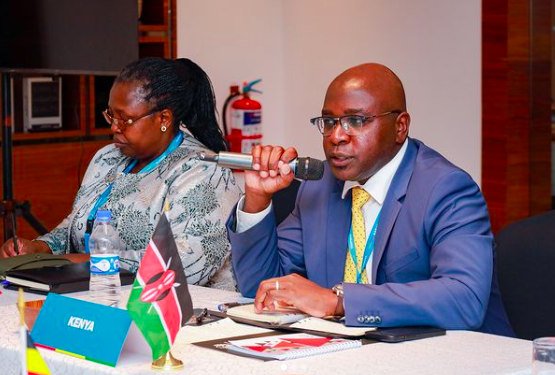The East Africa Revenue Authorities have a realised a total of US$ 3million in revenue from tax evasion investigations for the periods between October 2023 and April 2024.
- This was announced during the 18th East Africa Revenue Authorities Technical Committee on Integrity (EARATCI) meeting under the theme Integrity and Revenue performance, hosted by Kenya Revenue Authority (KRA).
- The three-day East Africa Revenue Authorities engagement brings together delegates from Kenya, Uganda, Tanzania, Rwanda, Burundi and South Sudan Revenue Authorities.
- KRA Commissioner General Humphrey Wattanga reiterated KRA’s commitment to mainstreaming integrity and values in all operations for effective revenue mobilization.
“Corruption fights back, mutates, and with technology, may become more complex. It is therefore critical for Revenue Authorities to be ahead of the curve in addressing tax integrity and combatting corruption,’ he said.
According to former KRA Commissioner General, Githii Mburu, tax crimes have been cited as major obstacles for developing countries in mobilizing domestic resources needed to finance development in a sustainable way.
“To mitigate against these crimes, tax authorities and government agencies dealing in financial investigations have heightened efforts to outsmart the tax cheats,” he says.
KRA, for instance, investigates potential violations of revenue loss and related financial crimes with a view to demanding unpaid taxes and prosecuting the key players where criminal culpability is established. This, in turn, builds the public confidence in the government’s ability to get their citizens to pay their fair share of taxes and the net result is an increase in voluntary tax compliance.
The chairman of the EARATCI, James Abola of Uganda Revenue Authority stated that Revenue Authorities are required to conduct their activities transparently and be accountable to the Government and community.
He said that for this year’s engagement, Members were keen to draw insights, share key learnings and progress resolutions around comprehensive integrity survey, data collection, the regional corruption perception index measurement tool and the regional investigation-training concept developed with the guidance of the African Tax Administration Forum.
The primary goal of the EARATCI is to continually identify initiatives that improve tax to GDP ratio, combat corruption, improve voluntary compliance, share information for investigations and promote integrity for enhanced revenue performance.
Other initiatives implemented within the EARATCI include capacity building, informer rewards, proactive investigations, lifestyle audits, vetting and integrity testing.
See Also:
Kenya Banks on Local Smartphone Production to Solve Tax Evasion




